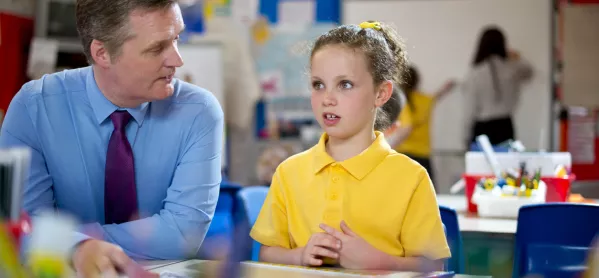
- Home
- Why Covid catch-up classes are a really bad idea
Why Covid catch-up classes are a really bad idea

As a result of lockdown, children in England are apparently now, on average, three months behind in their studies, with boys and poorer pupils worst hit.
So we should be celebrating the fact that the education secretary is putting an additional £80 per child into helping those who have “fallen behind” to “get back on track” and “catch up”. Or should we?
In our current research project, Children’s Life-histories in Primary Schools (Clips), we have found that, for some children - especially disadvantaged children - this schooling race is part of the problem, rather than part of the solution. It undermines, rather than improves, children’s wellbeing and achievement.
Coronavirus catch-up: More tuition is not necessarily better
For these children, providing more tuition, extra lessons in lunchtimes and on Saturdays - as promised by the education secretary - is akin to over-watering a sensitive indoor plant and killing its roots. More is not necessarily better.
And, as the children in our project tell us frequently, lunchtimes and Saturdays are the precious few times when they can engage in activities and relationships of their own choice. These may be, for example, at the mosque, on the football pitch, playing music or looking after animals. But they won’t include doing more of what they enjoy least, such as maths or writing.
The children tell us that what hinders their progress at school is boredom, being shouted at and ordered around, lack of attention to their own needs and aspirations, and, in particular, the constant focus on improving writing and arithmetic to the exclusion of the expressive arts, humanities and sport.
What hinders their progress is being denied opportunities for developing friendships, social skills and creativity. Children who feel physically or socially restrained learn less well, not better.
More of the same treatment in schooling - which has failed them so far - is likely to depress, rather than address, their lack of engagement in learning.
Wearing muddy wellies in a race
What children tell us helps them to engage enthusiastically in learning is interacting equitably and freely with adults and peers, taking initiatives that seem meaningful to them, expressing themselves creatively, feeling competent about their achievements and having a range of fulfilling relationships at school.
In our recent survey of parents, we found that children’s access to regular interaction, flexible studying and the exercising of autonomy were highlighted as key benefits of children learning outside school.
The conceptualisation itself of schooling as a race in which some children fall behind damages children’s potential for learning, especially those who do not usually win the race. In our Clips research project, we found that when children perceive themselves to be designated as falling behind in the race, this is the equivalent of making them wear muddy wellies for the rest of the race. And children who lack wellbeing in childhood are much more likely to experience mental health problems in adulthood.
If schooling really were a race, these children’s European counterparts would fall behind, because they start school two years later than British children. In fact, the opposite is true. An early start in formal schooling is associated with lower, not higher, achievement later on.
In reality, of course, there exists no racecourse that must be covered in a set number of years. But there does exist the child’s curiosity, and their creativity, to apply to learning in all its rich diversity - both to be enjoyed now and as preparation for a meaningful and sociable adult life.
Reimagining our schooling system
Covid-19 could be the opportunity for the education secretary to make substantial changes to the schooling system, and to disrupt the discourse of learning as a race. The cancellation of Sats and GCSEs last summer has shown how pointless these assessments are in the lives of many children.
Rather than celebrating the government’s provision of sticking-plasters to cover surface-level wounds, shouldn’t we be urging our government to take the opportunity to reimagine our schooling system - currently functional only for the most advantaged - and reinvigorate the right for all children to thrive at school?
Now that money is available to support those who are less advantaged, let it be spent in ways that children tell us works for them.
Trying to make these children catch up in a fabricated race is no way to inspire the young people of this country. We need to change the language of the race.
Eleanore Hargreaves is professor of learning and pedagogy at the UCL Institute of Education
Register with Tes and you can read five free articles every month, plus you'll have access to our range of award-winning newsletters.
Keep reading for just £4.90 per month
You've reached your limit of free articles this month. Subscribe for £4.90 per month for three months and get:
- Unlimited access to all Tes magazine content
- Exclusive subscriber-only stories
- Award-winning email newsletters
You've reached your limit of free articles this month. Subscribe for £4.90 per month for three months and get:
- Unlimited access to all Tes magazine content
- Exclusive subscriber-only stories
- Award-winning email newsletters